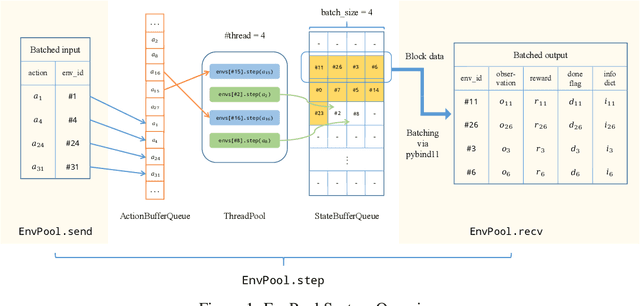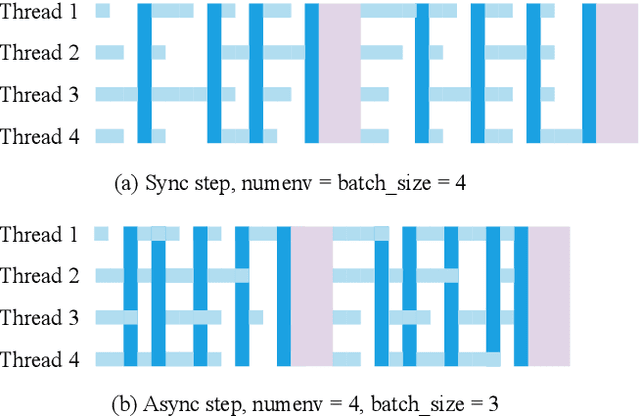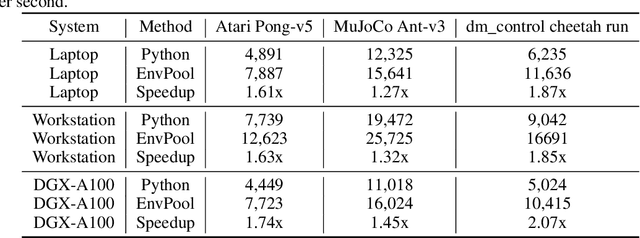Yufan Song
TheAgentCompany: Benchmarking LLM Agents on Consequential Real World Tasks
Dec 18, 2024Abstract:We interact with computers on an everyday basis, be it in everyday life or work, and many aspects of work can be done entirely with access to a computer and the Internet. At the same time, thanks to improvements in large language models (LLMs), there has also been a rapid development in AI agents that interact with and affect change in their surrounding environments. But how performant are AI agents at helping to accelerate or even autonomously perform work-related tasks? The answer to this question has important implications for both industry looking to adopt AI into their workflows, and for economic policy to understand the effects that adoption of AI may have on the labor market. To measure the progress of these LLM agents' performance on performing real-world professional tasks, in this paper, we introduce TheAgentCompany, an extensible benchmark for evaluating AI agents that interact with the world in similar ways to those of a digital worker: by browsing the Web, writing code, running programs, and communicating with other coworkers. We build a self-contained environment with internal web sites and data that mimics a small software company environment, and create a variety of tasks that may be performed by workers in such a company. We test baseline agents powered by both closed API-based and open-weights language models (LMs), and find that with the most competitive agent, 24% of the tasks can be completed autonomously. This paints a nuanced picture on task automation with LM agents -- in a setting simulating a real workplace, a good portion of simpler tasks could be solved autonomously, but more difficult long-horizon tasks are still beyond the reach of current systems.
ChipExpert: The Open-Source Integrated-Circuit-Design-Specific Large Language Model
Jul 26, 2024Abstract:The field of integrated circuit (IC) design is highly specialized, presenting significant barriers to entry and research and development challenges. Although large language models (LLMs) have achieved remarkable success in various domains, existing LLMs often fail to meet the specific needs of students, engineers, and researchers. Consequently, the potential of LLMs in the IC design domain remains largely unexplored. To address these issues, we introduce ChipExpert, the first open-source, instructional LLM specifically tailored for the IC design field. ChipExpert is trained on one of the current best open-source base model (Llama-3 8B). The entire training process encompasses several key stages, including data preparation, continue pre-training, instruction-guided supervised fine-tuning, preference alignment, and evaluation. In the data preparation stage, we construct multiple high-quality custom datasets through manual selection and data synthesis techniques. In the subsequent two stages, ChipExpert acquires a vast amount of IC design knowledge and learns how to respond to user queries professionally. ChipExpert also undergoes an alignment phase, using Direct Preference Optimization, to achieve a high standard of ethical performance. Finally, to mitigate the hallucinations of ChipExpert, we have developed a Retrieval-Augmented Generation (RAG) system, based on the IC design knowledge base. We also released the first IC design benchmark ChipICD-Bench, to evaluate the capabilities of LLMs across multiple IC design sub-domains. Through comprehensive experiments conducted on this benchmark, ChipExpert demonstrated a high level of expertise in IC design knowledge Question-and-Answer tasks.
OpenDevin: An Open Platform for AI Software Developers as Generalist Agents
Jul 23, 2024



Abstract:Software is one of the most powerful tools that we humans have at our disposal; it allows a skilled programmer to interact with the world in complex and profound ways. At the same time, thanks to improvements in large language models (LLMs), there has also been a rapid development in AI agents that interact with and affect change in their surrounding environments. In this paper, we introduce OpenDevin, a platform for the development of powerful and flexible AI agents that interact with the world in similar ways to those of a human developer: by writing code, interacting with a command line, and browsing the web. We describe how the platform allows for the implementation of new agents, safe interaction with sandboxed environments for code execution, coordination between multiple agents, and incorporation of evaluation benchmarks. Based on our currently incorporated benchmarks, we perform an evaluation of agents over 15 challenging tasks, including software engineering (e.g., SWE-Bench) and web browsing (e.g., WebArena), among others. Released under the permissive MIT license, OpenDevin is a community project spanning academia and industry with more than 1.3K contributions from over 160 contributors and will improve going forward.
EnvPool: A Highly Parallel Reinforcement Learning Environment Execution Engine
Jun 21, 2022



Abstract:There has been significant progress in developing reinforcement learning (RL) training systems. Past works such as IMPALA, Apex, Seed RL, Sample Factory, and others aim to improve the system's overall throughput. In this paper, we try to address a common bottleneck in the RL training system, i.e., parallel environment execution, which is often the slowest part of the whole system but receives little attention. With a curated design for paralleling RL environments, we have improved the RL environment simulation speed across different hardware setups, ranging from a laptop, and a modest workstation, to a high-end machine like NVIDIA DGX-A100. On a high-end machine, EnvPool achieves 1 million frames per second for the environment execution on Atari environments and 3 million frames per second on MuJoCo environments. When running on a laptop, the speed of EnvPool is 2.8 times of the Python subprocess. Moreover, great compatibility with existing RL training libraries has been demonstrated in the open-sourced community, including CleanRL, rl_games, DeepMind Acme, etc. Finally, EnvPool allows researchers to iterate their ideas at a much faster pace and has the great potential to become the de facto RL environment execution engine. Example runs show that it takes only 5 minutes to train Atari Pong and MuJoCo Ant, both on a laptop. EnvPool has already been open-sourced at https://github.com/sail-sg/envpool.
 Add to Chrome
Add to Chrome Add to Firefox
Add to Firefox Add to Edge
Add to Edge